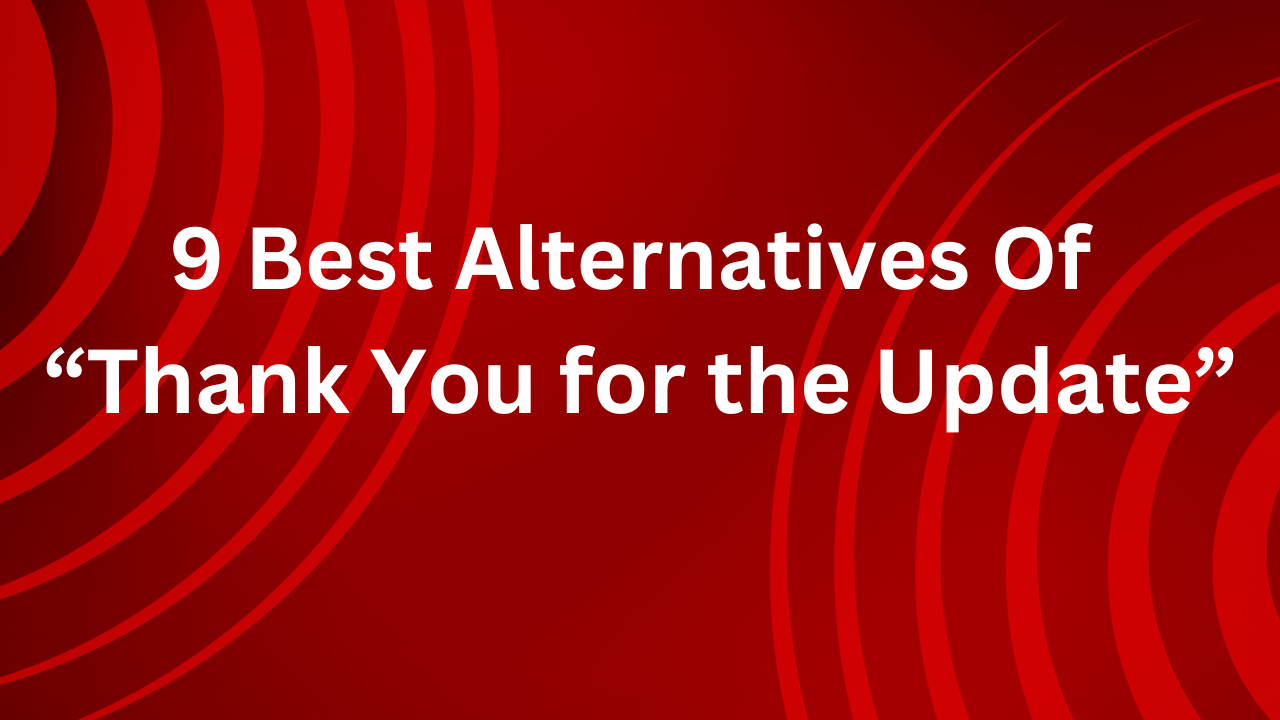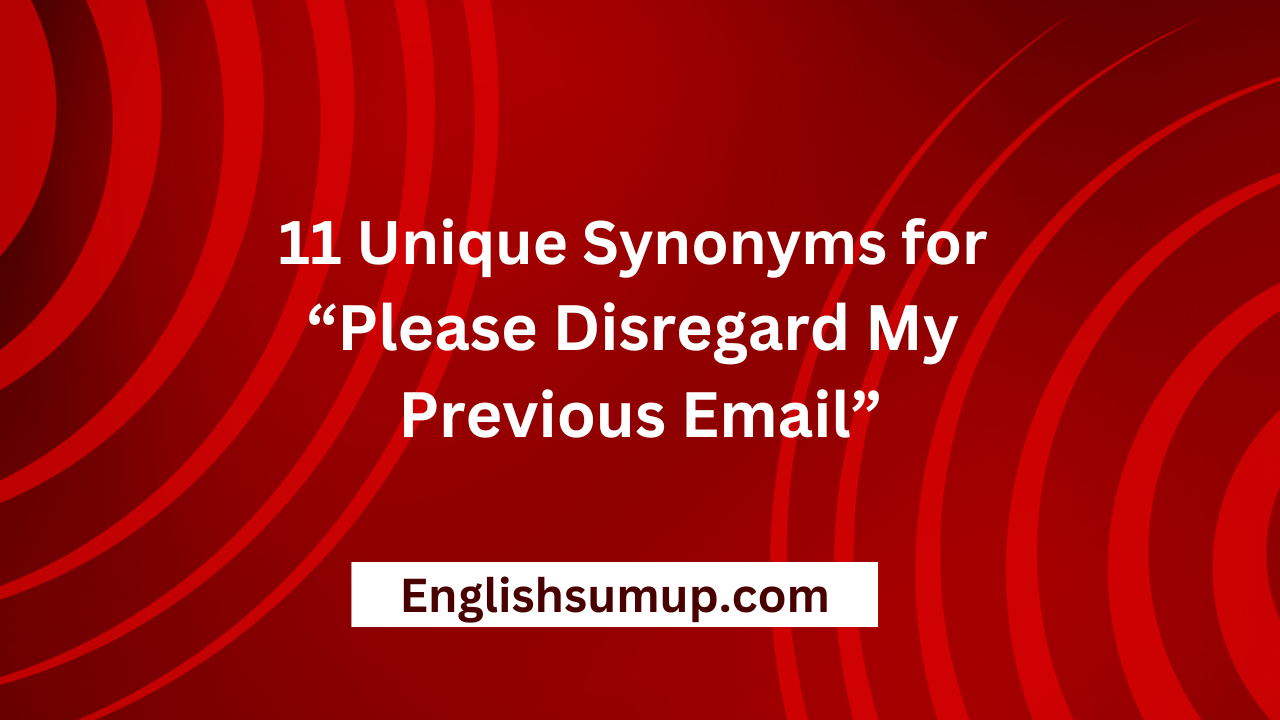Effective communication often requires us to convey the same idea in different ways to maintain the reader’s interest and ensure clarity. One commonly used phrase is “In case you are not aware.” While it serves its purpose well, varying your language can enhance your communication skills. Here are 20 other ways to say “In Case You Are Not Aware,” along with detailed explanations for each alternative.
Here Are Synonyms for “In Case You Are Not Aware”

- For Your Information
- Just So You Know
- To Bring to Your Attention
- In Case You Didn’t Know
- For Your Awareness
- If You Haven’t Heard
- You Might Not Know This
- Just to Let You Know
- In Case You Missed It
- To Keep You Informed
- For Your Records
- So You Are Aware
- Just a Heads Up
- If You’re Not Familiar
- To Notify You
- In the Event That You Didn’t Know
- For Your Consideration
- To Enlighten You
- Should You Be Unaware
- In Case This Wasn’t Clear
For Your Information
“For Your Information,” commonly abbreviated as FYI, is a direct way to ensure someone has specific details they might need. This phrase is often used in emails, memos, and messages to provide updates without requiring immediate action. It can be particularly useful in professional settings where concise and clear communication is essential. When you use “For Your Information,” you are ensuring that the recipient is aware of the facts or updates that might affect their understanding or actions. It serves as an informative cue, indicating that the information is being provided in case you are not aware.
Just So You Know
A more casual approach, “Just so you know” is often used in everyday conversation to inform someone of something they might not be aware of. This phrase adds a personal touch to the communication, making it feel less formal and more conversational. This phrase is effective in both personal and professional contexts when you want to share information without creating a sense of urgency. It gently brings up information, indicating that it’s being shared in case you are not aware.
To Bring to Your Attention
This phrase implies that the information is important and needs the recipient’s focus. “To Bring to Your Attention” is frequently used in professional and formal correspondence. It suggests that the recipient should take note of the information and possibly take action. This alternative is particularly useful in business communications when you want to highlight critical details that may require further consideration or immediate response. It indicates that the information is being provided to ensure it’s brought to your attention in case you are not aware.
You may love this one: 20 Other Ways to Say “Please Be On Time”
In Case You Didn’t Know
Similar to “In Case You Are Not Aware,” this variant adds a slightly more casual tone while still ensuring the information is conveyed. “In Case You Didn’t Know” is a friendly way to inform someone of something they might have missed. This phrase works well in both formal and informal settings, providing flexibility in its use. It emphasizes that the information is being shared in case you are not aware of it already.
For Your Awareness
A concise way to inform someone, “For your awareness” is often used in professional settings to highlight key information or updates. This phrase indicates that the information is important for the recipient to know but does not necessarily require immediate action. It is a formal way to ensure that the recipient is kept in the loop. By stating “For Your Awareness,” it’s clarified that the information is shared in case you are not aware and need to be informed.
If You Haven’t Heard
This phrase is used to gently introduce new information, often implying that the news might not have reached the recipient yet. “If You Haven’t Heard” suggests that the information is fresh or recent and that the recipient might benefit from knowing it. This alternative is suitable for both casual and formal communications. It softly suggests that the information is being shared in case you are not aware of it yet.
You Might Not Know This
A straightforward and direct way to inform someone of something they might not be aware of. “You Might Not Know This” is effective in both formal and informal contexts. It ensures that the recipient is informed of specific details they might have overlooked, making it a versatile phrase for various situations. By stating “You Might Not Know This,” it’s implied that the information is being provided in case you are not aware.
Just to Let You Know

A casual and friendly way to inform someone, often used in personal or less formal communications. “Just to Let You Know” helps to share information without imposing any pressure on the recipient. It is an approachable way to ensure that someone is aware of relevant details. It conveys the message that the information is being shared just to let you know, in case you are not aware already.
In Case You Missed It
This phrase is often used to catch someone up on information they might have overlooked, commonly seen in newsletters or briefings. “In Case You Missed It” is effective in ensuring that the recipient does not miss out on important updates or events. It is particularly useful in written communications where summarizing past information is necessary. It signifies that the information is being reiterated in case you are not aware of it.
To Keep You Informed
This implies that the sender is actively ensuring the recipient remains updated, suitable for both professional and personal contexts. “To Keep You Informed” suggests an ongoing effort to provide updates and maintain clear communication. It is a phrase that shows consideration for the recipient’s need to stay informed. By stating “To Keep You Informed,” it indicates that the information is being shared to ensure you are not left unaware.
For Your Records
Used primarily in formal communication, this phrase suggests that the information should be kept for future reference. “For Your Records” indicates that the recipient should document the information for potential future use. This phrase is often used in business or legal contexts where maintaining accurate records is important. It emphasizes that the information is being shared for your records, in case you are not aware and need to keep track of it.
So You Are Aware
This is a simple and effective way to make sure the recipient knows the information being shared, often used in professional environments. “So You Are Aware” is a direct phrase that ensures the recipient is informed of specific details without adding any urgency or pressure. It conveys that the information is being provided so that you are aware of it.
Just a Heads Up
A very casual and friendly way to inform someone, often used in everyday conversations to share minor yet relevant updates. “Just a Heads Up” is effective for casual communication, providing a friendly warning or notice to the recipient. It suggests that the information is being shared as a heads up, in case you are not aware of it yet.
If You’re Not Familiar
This phrase is often used to introduce information that the recipient might not be acquainted with, useful in both formal and informal contexts. “If You’re Not Familiar” helps bridge knowledge gaps by providing necessary background information. It indicates that the information is being shared in case you are not familiar with it.
To Notify You
A formal way to inform someone, implying that the information is important and needs their attention. “To Notify You” is often used in official communications to highlight significant details that the recipient should be aware of. It indicates that the information is being provided to notify you, in case you are not aware already.
In the Event That You Didn’t Know
A more detailed variant of “In Case You Are Not Aware,” it adds a formal tone and emphasizes the potential unawareness of the recipient. “In the Event That You Didn’t Know” is suitable for formal communications where ensuring the recipient’s awareness is crucial. It suggests that the information is being shared in the event that you didn’t know about it.
For Your Consideration
This phrase not only informs but also implies that the recipient should think about or act on the information provided. “For Your Consideration” is a formal way to present information that might influence decisions or actions. It indicates that the information is being shared for your consideration, in case you are not aware of it.
To Enlighten You
Slightly formal and perhaps a bit literary, this phrase aims to inform and educate the recipient on a particular matter. “To Enlighten You” suggests that the information provided will enhance the recipient’s understanding or knowledge. It conveys that the information is being shared to enlighten you, in case you are not aware of it.
Should You Be Unaware
A formal and conditional phrase that implies the recipient might not have the information yet but needs to know it. “Should You Be Unaware” is often used in legal or formal business contexts to ensure the recipient’s awareness. It suggests that the information is being shared should you be unaware of it.
In Case This Wasn’t Clear
This phrase not only informs but also clarifies previous information, ensuring the recipient fully understands the context. “In Case This Wasn’t Clear” is effective in both professional and personal communications to clear up any misunderstandings and ensure comprehensive understanding. It indicates that the information is being provided in case this wasn’t clear to you.
Conclusion
Mastering the art of communication involves using a variety of expressions to convey the same message effectively. While “In Case You Are Not Aware” is a reliable phrase, integrating these 20 alternatives can enrich your vocabulary, enhance clarity, and keep your audience engaged. Whether you’re communicating in a formal setting, sharing updates casually, or ensuring comprehensive understanding, each synonym offers a unique way to provide essential information. By selecting the appropriate phrase based on the context and tone, you can convey your message more precisely and dynamically. Embracing these alternatives will not only improve your communication skills but also ensure that your message is received and understood as intended.










